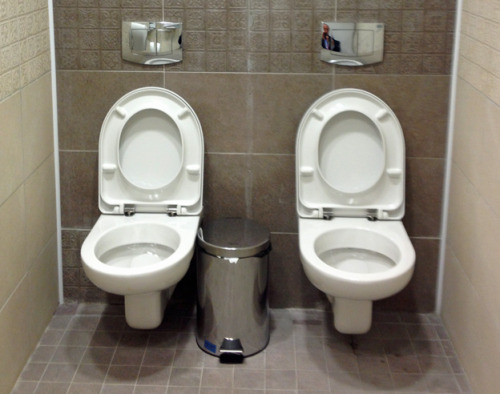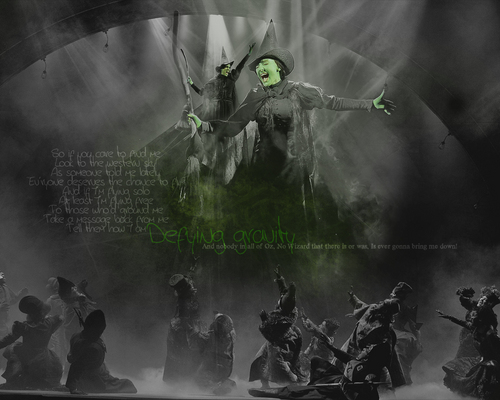I am completely absorbed in the fantasy world of Divergent right now. And as I do with all things in which I'm absorbed, I started drawing parallels to my own life.
I imagine that most real life people would have a hard time choosing one of the imaginary factions in the fictional world of Divergent. I personally would be torn between the Dauntless and the Erudite. Erudite appeals to my enjoyment of having good, intellectual conversations, but that seems like it would be draining to have to do it nonstop. Dauntless just seems like fun, if not a little crazy.
SPOILER ALERT: Beatrice's faction choice and initiation In the book, the main character, Tris, goes through initiation and has to face her fears in a simulation. In my day to day activities, I'm not usually suffocated by crows or kidnapped by faceless men, but I do have to do things like talk on the phone for work.
I'm not embarrassed. I have anxiety about talking on the phone. I hate answering phone numbers I don't recognize. I hate calling people I'm not good friends with. And I am terrible at ending conversations - that is perhaps the strangest part of all. I can face my fears and answer the phone. I can answer the questions the caller asks of me. I can call other people (although I prefer to do it when my co-workers are away from their desks or pre-occupied so they can't listen to me as easily). And I imagine that I can end the conversation politely and professionally. But sometimes it seems to catch the other person offguard, and their alarm turns into panic for me.
This is what happened today. I thought it was better to chat with a co-worker in another part of the country about some questions I had, rather than email her and lose the inflection and personal touch. So while the person who trained me was away from her desk, and the colleagues in my row were chatting with other people, I picked up the phone and dialed.
My co-worker answered and we exchanged pleasantries. So far so good. I had written my questions down so I knew what to say, and I followed that script. I even typed in the answers to reinforce my memory, because in panic-y moments as this I tend to have no memory
Once my questions were done, I tried wrapping it up by saying that that information would help me, and thanking her for it. She said she was looking forward to my update (which we had previously exchanged an email about).
Then I said, "Okay, I'll talk to you later," maybe a little too quickly. She responded with something like, "Oh - okay. Good bye." She sounded stunned, like I had said something crazy. I don't know what I did wrong, except maybe speaking too fast. But it obviously bothered me enough to compare it to a fear, as if I was being tested like Tris was.
That got me thinking about what my fear landscape would look like. It wouldn't be anything physically traumatic like suffocating or being too high off the ground. It'd be mental. I'd have to answer a series of phone calls from unknown numbers. I'd have to eat a sandwich in a windy sand dune. Okay, maybe I'd have one where someone was breaking into my house, and I couldn't find them, because I'm always paranoid about sounds when I'm home alone. And I'm sure there'd have to be one scenario with bugs creeping up my legs. But other than that, I'm not really sure. I'm not afraid of jumping off a bridge or drowning in the ocean or of small spaces. I had no traumatizing beatings as a child to rehash, or deep-seeded fear that my family will die because of me. I think I am a bit of a thrillseeker, and I'm more rational and logical than emotional concerning most things. Research tells us most people are afraid of public speaking, but I've faced that fear and am largely over it. While in the Onsen in Japan, I was liberated from the nervousness that comes from being naked in front of people, because the Japanese women didn't even try to hide their stares. I've been comfortable being naked ever since: in tanning booths, in massages, in front of doctors.
SPOILER ALERT: Four's origins I supposed that makes me like Tobias in the book. I have four fears, while most people have 10 to 15. Is that accurate? Or is it because the kids in the book are still young, not having had time to face all their fears yet, and I'm nearly double their age. I suppose if I assume public speaking and nudity were fears I had when I was 16, that gives me at least 6 fears.
SPOILER ALERT: Tris' fear landscape I'll endulge myself to go a little into some criticism of the book. Tobias' fear landscape had four unique fears represented. It was clear in each scenario what the fear was. But in Tris' fear landscape, most of the scenarios can be tied back to a single fear: lack of control. And really, I may not be totally cognizant of my own fear in this respect, because I imagine I'd struggle a bit with those scenarios too. But still, if she had seven fears scenarios, but six of them were merely the same fear played out differently, then really, she's a prodigy with only two fears. Maybe her parent one was different, so call it three fears. But then, she should in theory be over the one with Tobias, so its back down to two. That's half of Tobias' highly-acclaimed four. Maybe we'll find out later that her Divergence causes her fears to be duplicated or something like that, but it just seems unfair. She's braver and smarter than she gives herself credit for, and she should be recognized as such.
Anyways, fear is not something we talk about a lot. In fact, my oldest sister and I went 20 years probably without realizing that we shared the same anxiety about phone calls. Yet they probably shape our lives more than we consciously realize. For me, being called too often by the some telemarketer or even professional contact irritates me. I typically avoid picnics and activities that involve sitting outside, for fear of bugs crawling onto me. I am not a fan of eating outside in general, even if its not near sand, because dirt in my sandwich has the same effect on me.
On the other hand, when overcoming a fear is important to me, like public speaking, I've made choices that lead to me facing my fears, in order to diminish them. Public speaking being my primary example. The Onsen example was not so much a choice as something I was flung into and permanently changed as a result, which is okay too.
The question then becomes, what fears do I still have that I want to diminish? I got stuck here, because I'm not sure I really care enough about any of the other fears. I am confident and courageous in the most important aspects of my life, I think. And on the other side of the coin, having the humility of a few fears might be good for my overbearing pride.
If anything, my phone anxiety could use some work. Breaking it down a little bit, I suppose my inclination to make phone calls when other people aren't listening or are pre-occupied means I'm afraid of sounding stupid or unprofessional. The reason I don't like answering phone calls is because I may not be prepared for the questions being asked. Also, I think I just don't like being interrupted. I like being in control of my schedule, of how my time is spent and what my priorities are. When someone calls me, that appears to me as an assumption that what they're calling about it more important than what I'm working on. And maybe they're right, but usually they're wrong. I have the same feeling about Instant Messages at work - and that annoys me even more I think because it loses the justification of wanting to hear voice inflection. If its truly a quick question that the other person would generally be able to answer off the top of their heads, I think that's an appropriate use of IM. But IMing me or calling me to tell me you sent an email, unacceptable. Should it be okay? Or are people just really that bad at communications etiquette?
But I digress... I'm not sure what bothers me while I'm on the call. It seems like I should be comfortable. Maybe I'm worried I'm taking too much of their time. I don't know what it is, but its easy for me to get flustered. Interestingly enough, conference calls are a whole different scenario for me - I'm comfortable on conference calls, like I am with public speaking. They fit in the same category for me. Maybe its just one-on-one interaction I don't like, like its confrontational (which I know I've always disliked). I think that must be it - I see one-on-one phone conversations as confrontations, and I shirk away from confrontations. So how does one get better at confrontations? Clearly, just doing more of them hasn't seemed to improve my ability.
I remember a revelation I had when I was learning to become an instructor, it stuck with me all these years when I think about public speaking or when I'm advising someone else on public speaking. It was that the audience wants you to succeed. I guess we naturally assume that everyone is waiting for us to fail, and that makes us nervous. I relaxed and became much more confident and comfortable once I told myself that my students wanted me to succeed -that nobody in the room wants to see me get flustered or panicked. So, perhaps I can apply that to confrontations. I need a mantra - like, they are seeking me out because I'm an expert - to help me relax. I'm not sure that's the right one, but something along those lines should work. Maybe it's they want to help me succeed. That wouldn't have been true in my last job, but much more likely to be true here. Certainly, I had a very negative person I had to work with my first job, Rhona, and she did everything she could to make sure I didn't succeed. That wouldn't have worked with her. With someone like Rhona, I would have to tell myself that I am smarter than her, or something like that. Maybe I need a combination of those - I'm smart so I will succeed, and maybe this person can help.
Well, it's not catchy. But I'll give it a go. I'm smart so I will succeed, and maybe you can help.










